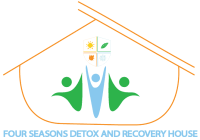The stages of addiction recovery mark specific milestones that people overcoming substance use disorders and related concerns (like behavioral addictions) tend to experience. It is possible to modify your behavior, and many use the transtheoretical model, or stages of change theory, to create that change. The transtheoretical model (TTM) is backed by research, and it is effective in helping people create an action plan for addiction recovery.
So, what are the stages of addiction recovery? Whether you’re the loved one of a person with a substance abuse problem or are contemplating recovery yourself, Four Seasons Detox is here to help. Let’s get into the stages of addiction recovery and how they might apply to you or your loved one.
What are the Stages of Addiction Recovery?
Also called the stages of change, there are 5-6 stages a person might go through in addiction recovery. Here are the stages of addiction recovery a person may experience. Note that many people go through these stages several times and that they aren’t necessarily linear.
Precontemplation
Someone in the precontemplation stage is not necessarily contemplating recovery yet. They may experience pressure to seek help for their addiction from others (like friends or family members), and they may experience a range of negative consequences related to their addiction. Still, they are not yet in the contemplation stage. Some things can help bridge the gap between the precontemplation and contemplation stages. For example, therapy can increase awareness and help people in this spot move toward the contemplation stage.
Contemplation
The contemplation stage of addiction recovery is exactly what it sounds like. If you’re in this stage, you are considering taking the necessary steps to address a substance abuse problem. You might start to get curious about a life without drugs and alcohol, or you might contemplate seeking substance abuse treatment.
Preparation
The preparation stage of addiction recovery is when you are in the final steps of preparing to take action against drug and alcohol abuse. During the preparation stage, the person has a clear understanding that they have a problem and that seeking help is better than the alternative. It is time to gather information and create a plan. For example, you might be looking at addiction treatment centers or support groups to attend, or seeking Drug & Alcohol Detox services as you prepare to stop using drugs and alcohol.
Action
The action stage of addiction recovery refers to when you start to change your behavior to support addiction recovery. The action stage could look like refraining from drug and alcohol use, entering a treatment program, going to support groups, and any other actions you take to help yourself through the early days of sobriety. If you’re in a recovery program like our Inpatient Drug Rehab program, this is likely the stage you are in.

Maintenance
Maintenance refers to the stage where you are doing what you need to do to stay sober and committed to sobriety. Addiction recovery doesn’t end with treatment. If you are not dedicated to maintaining sobriety, the risk of relapse is high, and it is always important to keep your relapse warning signs in mind. The stages of addiction recovery can end here; maintenance can be lifelong. While you may continue working to build new skills, overcome hurdles, and work on yourself, many people feel increasingly confident in their sobriety as the years go on.
Relapse
Not everyone goes through a relapse as they work to recover from addiction. However, many people do; if that’s true for you, it is critical to recognize that it does not undo your progress and does not mean that you won’t get and stay sober. For those who go through a relapse, this stage can be a learning opportunity. It might help you better recognize, for example, what brought on the relapse so that you can pinpoint the factors that led to your current or recent behaviors and prevent those factors from leading to a relapse again in the future. Then, you can work toward the maintenance stage again.
Call Four Seasons Detox for Luxury Drug Rehab and Addiction Treatment in California
Four Seasons Detox is a luxury drug rehab and addiction treatment center in Simi Valley, California. From private rooms to pristine amenities and individualized addiction treatment programs, we’ve got everything necessary to help you or your loved one through each stage of addiction recovery and reach lasting sobriety.
Please call Four Seasons Detox today at (805) 991-5111 to speak with our admissions team for yourself or someone you care about. No matter what stage you or they are in, we can guide you through the next steps.
Frequently Asked Questions (FAQs) About the Stages of Addiction Recovery
What are the 5 stages of addiction recovery?
How many people with addiction recover?
What are the stages of relapse?
Emotional relapse: This stage refers to an emotional state where you may be at an increased risk of relapse due to an uptick in mental health challenges (e.g., isolation, mood swings, or other vulnerable emotional states, like grief or anxiety).
Mental relapse: During a mental relapse, you will start to feel increasingly triggered to use substances; you might think about drinking or using drugs more, think about how you would attempt to “control” substance use, fantasize about using substances, or minimize your past experiences with addiction.
Physical relapse: The physical relapse stage involves using substances again. It is possible to break out of this stage.
Knowing the stages of relapse matters because if, for example, you can detect relapse during the emotional or mental stage, you can amp up your coping skills, seek extra support, and understand your potential vulnerability to physical relapse. Knowing these stages can help you prevent addiction relapse, understand how you got to the place of physical relapse (so that you can prevent it in the future), or address a relapse.



